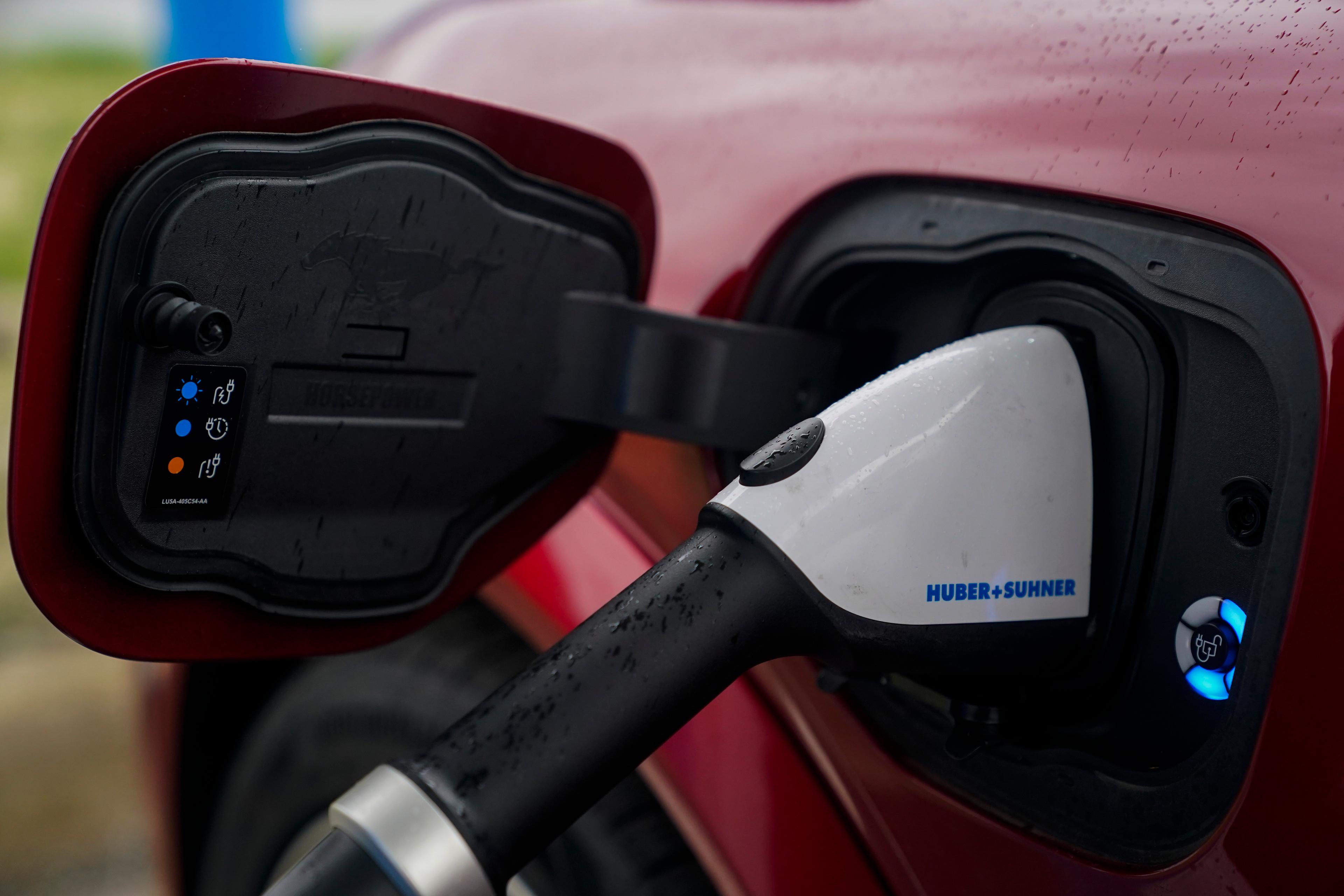
President-elect Donald Trump is preparing to slash federal support for electric vehicles, but Gov. Jared Polis believes Colorado drivers will continue to opt for battery-powered cars due to their superior performance and lower operating costs.
“[EVs] have so many advantages over internal combustion engines,” Polis said Monday. “They are catching on rapidly across the country and that will continue no matter what the federal and state policies are.”
Polis spoke at a press conference to celebrate the completion of a state program to fund EV fast chargers along popular highways. Established in 2018, the state invested more than $10 million through the initiative to support the construction of 33 charging stations. That includes a bank of high-powered charging monoliths outside a SuperTarget in Wheat Ridge, which served as the backdrop for the event.
Colorado launched the program at a time when EVs accounted for a small sliver of total auto sales. In the third quarter of 2024, more than 25 percent of all vehicles sold in Colorado could plug into an outlet, marking the first time any state surpassed California's total EV market share. “It’s always fun to beat California,” Polis said during the press conference.
The rapid growth in EV sales occurred as Colorado residents took advantage of a generous suite of state and federal incentives. Those discounts, however, are starting to disappear. A rebate program offered by Xcel Energy is officially out of cash, and Colorado’s EV tax credit shrinks from $5,000 to $3,500 starting in 2025.
EV sales have also risen alongside the number of publicly available charging stations. A state dashboard shows Colorado offers 1,100 fast-charging ports, which can usually replenish an EV in less than an hour. There are also nearly 4,400 slower plugs ready to add power while drivers sleep or run longer errands.
While the state closed its highway corridors charging program, it will continue to offer federal and state funding to support new fast-charging stations through other state initiatives. The Colorado Energy Office expects the grants will help another 400 charging ports open over the next year.
Those achievements, however, come as the incoming presidential administration appears ready to slash federal support for EVs. The transition team for President-elect Trump has signaled plans to kill a consumer tax credit worth up to $7,500 on a new EV. It’s also planning to roll back tough tailpipe emissions standards promoted by President Biden and redirect funding for EV chargers to support a domestic battery supply chain less reliant on China, according to a recent report from Reuters.
When asked about those plans, Polis took out his phone to search for a recent post on X from Elon Musk, who owns Tesla and supported President-elect Trump in the last election. The governor gave up after scrolling for about a minute, but said he had hoped to find a post where the billionaire Trump advisor claimed EVs would continue to win new customers without federal help. “The guy just tweets all day and night,” Polis said.
Musk has taken on a central role in the transition team for the incoming presidential administration. While he owns the nation’s largest EV maker, he has supported a plan to kill the federal EV tax credit, saying the loss would hurt his competitors more than Tesla.
Polis declined to assess Musk’s work on the transition team, but he said it’s “great” the billionaire supports battery-powered cars since they’re such an important part of the transition away from fossil fuels.
The governor was far more critical of President-elect Trump’s pledge to slap new tariffs on a wide range of imports. Polis said those plans will force consumers to pay higher prices for all vehicles and renewable energy. The governor also criticized President Biden after he levied a 100 percent tariff on EVs made in China earlier this year.
“Tariffs just make life more expensive for Americans across the board, and EVs are no exception to that. All the more reason to go out and buy an EV now,” Polis said.
Polis has set a goal to put 940,000 EVs on Colorado roads by 2030 as part of a statewide strategy to reduce emissions from Colorado’s transportation sector — the largest local source of climate-warming emissions. The state is currently about 17 percent of the way toward the target, but a study commissioned by the Colorado Energy Office suggests the state could reach the goal by continuing to invest in EV charging infrastructure.








